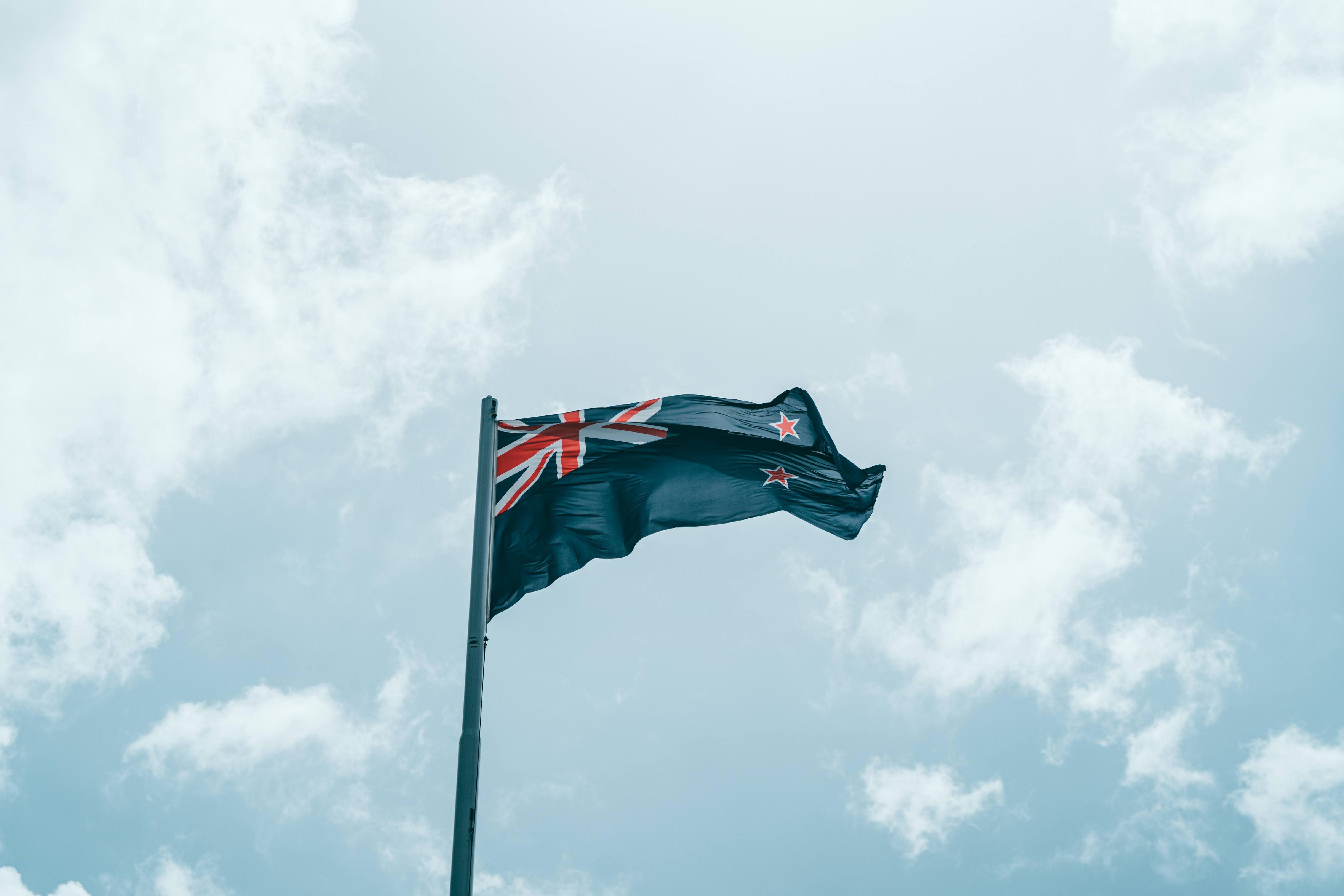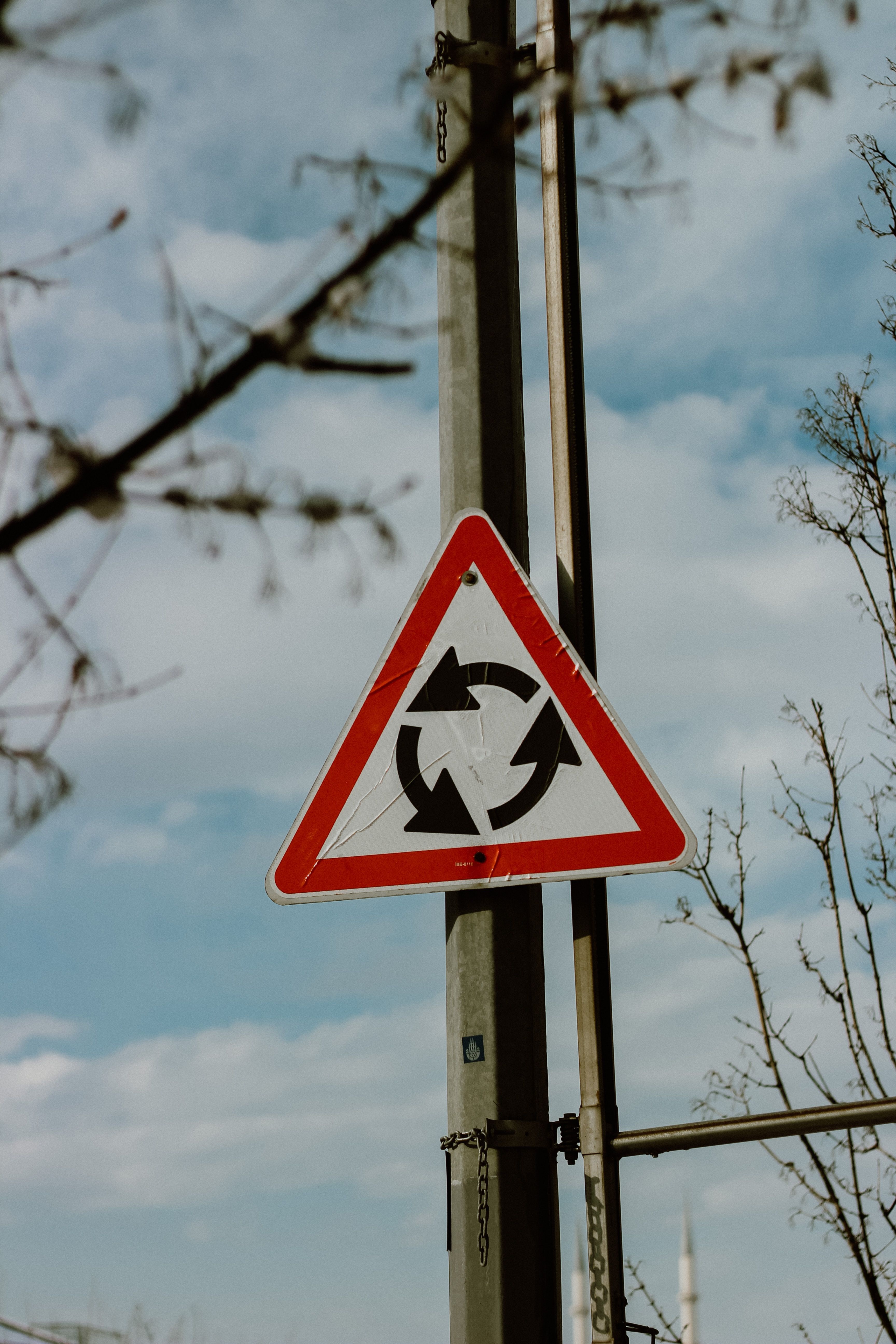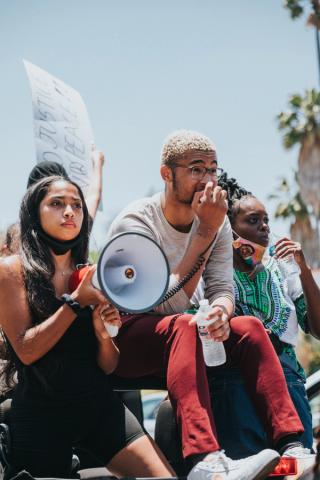Transformational change for the criminal justice system – and beyond


What do we mean by transformation?
One of Amnesty International’s main areas of work in Aotearoa New Zealand is addressing the human rights issues in the country’s criminal justice system. Last year, we launched our campaign to raise the age of criminal responsibility. As a movement, we advocate for people in prison to be treated fairly, and we combat harmful narratives that we’re concerned can undermine the type of interventions needed to address the causes of crime. We advocate for policies and legislation that would bring the country in line with international human rights standards. But at a deeper level, we are calling for transformational change.
He Whakaputanga o te Rangatiratanga o Niu Tireni (the Declaration of Independence) and Te Tiriti o Waitangi provide our pathway forward towards this transformation.
The failure of Government to uphold He Whakaputanga and Te Tiriti, the immeasurable violence and harm caused throughout our colonial history, and the discriminatory practices and racism that still prevail today are all central to the issues in the criminal justice system. While we work to reduce harm in the current system, our overarching goal is to support the transformation of this system into one that fully and properly recognises the tino rangatiratanga of Māori that Te Tiriti and He Whakaputanga uphold.
Pioneering experts and advocates are guiding a pathway towards this transformation. Thanks to their important mahi, there are several key documents that help to explain what’s wrong with our criminal justice system, why transformational change is needed, and what this could look like.

Looking back and looking forward: pivotal publications
He Whaipaanga Hou
He Whaipaanga Hou, written by the late Moana Jackson and published in 1988, was a ground-breaking report in the history of criminal justice reform in Aotearoa. The report revealed the deep-rooted racism and discrimination facing Māori in the criminal justice system and highlighted how Pākehā approaches had failed to understand this issue. Drawing on years of consultation with Māori people, the report gave voice to those with lived experience of injustice and underscored the need for Māori-led solutions to address this harm.
Matike Mai Aotearoa
Matike Mai Aotearoa was produced by a working group formed at a meeting of the Iwi Chairs’ Forum in 2010. Generated out of more than 200 hui, the report proposes a range of models for constitutional reform that would establish “an inclusive Constitution for Aotearoa based on tikanga and kawa, He Whakaputanga o te Rangatiratanga o Niu Tireni of 1835, Te Tiriti o Waitangi of 1840, and other indigenous human rights instruments”. The report considers a range of issues, including the foundations of constitutions and different understandings of power, as well as the importance of constitutional values. The report finishes with recommended steps towards constitutional transformation. Transformational change in the criminal justice system is dependent on this mahi.
“Disempowerment can only be alleviated through a process of constitutional transformation.” - page 26
Ināia Tonu Nei
The Ināia Tonu Nei kaupapa is a critical source of Māori expertise and perspectives on the future of Aotearoa’s criminal justice system. Frustrated by the lack of Māori voice at the Crown’s Criminal Justice Summit in August 2018, Māori attendees called for a national hui to discuss a Māori framework for the reformation of the justice system. The resulting Hui Māori Report details the calls of Hui participants and recommendations to give effect to these calls. The report echoes calls from Matike Mai Aotearoa for the government to engage in constitutional reform. Importantly, the report also highlights the need to decolonise the justice system in order for all legislation and policy settings in Aotearoa to reflect Te Ao Māori, Tikanga Māori and Te Tiriti o Waitangi.
“The justice system is continuing to harm Māori more than any other grouping in Aotearoa.” - page 23
A further report published in 2022 provides an in-depth account of how our country’s colonial past has and continues to cause harm to tangata whenua, and details what a transformed justice system would look like in Aotearoa. This timeline produced by Ināia Tonu Nei is a helpful resource for understanding key moments in history, especially in relation to criminal justice reform.

He Puapua
In March 2019, the government committed to develop and implement a national plan of action on the country's progress towards achieving the objectives of the United Nations Declaration on the Rights of Indigenous Peoples (UNDRIP). A working group was established to develop a plan and an engagement process to offer a roadmap towards the realisation of the UNDRIP in Aotearoa. The working group submitted their report, He Puapua, in November 2019. This report was intended as a first step towards the creation and adoption of an UNDRIP plan by the Government. However, in December 2022, the government announced that work towards the development of this plan would be put on hold.
Ki Te Whaiao, Ki Te Ao Mārama and Maranga Mai!
Building on all of these important contributions, Te Kāhui Tika Tangata Human Rights Commission (HRC) published two reports this year which together underscore the urgent need to recognise Māori tino rangatiratanga. These reports outline how colonisation, racism, and white supremacy have contributed to injustices and inequities for tangata whenua across every facet of life, including criminal justice. Ki te whaiao, ki te ao Mārama was commissioned to inform the government’s National Action Plan Against Racism, currently led by the Ministry of Justice. Produced by a taskforce of experts and reflecting a series of community engagements, the report details contemporary experiences of racism in Aotearoa.
Maranga Mai!, a sister report, details how colonisation, racism, and white supremacy have created generations of injustice for tangata whenua - a history which must be accepted by tangata Tiriti.
“There is an urgent need for New Zealanders to accept the truth about the magnitude of racism experienced by Māori today and acknowledge that this history of racism stretches back to colonisation.” – page 23
Both reports urge the government to take bold moves and urgent actions to address racism in Aotearoa. This includes the call for constitutional transformation as a cornerstone for long-lasting social reform.

Pathways forward: criminal justice and beyond
Each of the documents outlined above offer pathways towards a better society. They call for the justice system to reflect Te Tiriti o Waitangi, te ao Māori and tikanga Māori approaches to justice. They call for institutional racism to be challenged within the criminal justice system through law, recruitment, and training. Together, they call for tino rangatiratanga to be restored to tangata whenua and to be enshrined in constitutional reform.
“We have the opportunity to stop the ongoing negative effects of colonisation, racism and white supremacy and move towards a positive future as a country”Dr Rawiri Taonui
Together with the growing community across the motu, Amnesty International Aotearoa New Zealand will continue to urge the government to carry on the impetus for transformational change. Join us as we work to build a country where human rights are enjoyed by all.
